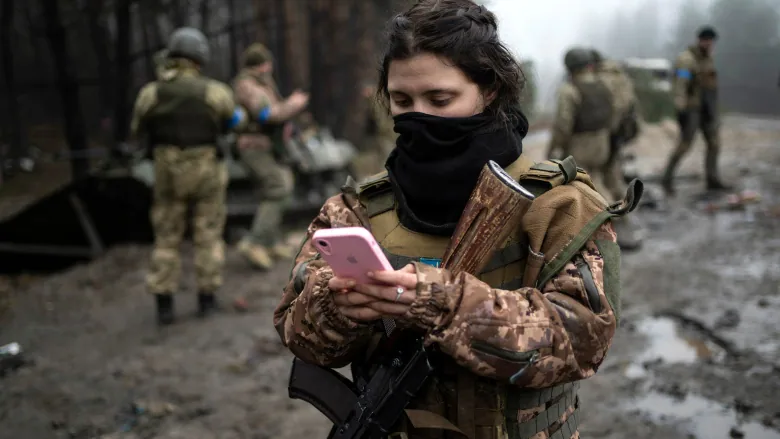Blog Post
The World Shifting Beneath Our Feet: An Interview with N.S. Lyons
By Jonathon Van Maren
Since Substack was founded in 2017, it has rapidly become a hub of serious debate on our historical moment’s most pressing issues, with writers fed up with the slow strangulation of woke editorial teams fleeing broadsheets for the new platform: Andrew Sullivan left New York Magazine; Bari Weiss abandoned the New York Times; Matt Yglesias quit Vox, to name just a few. Discussions that have become largely impossible in the mainstream media are now unfolding on Substack. But the major disadvantage for readers is that each newsletter requires an individual subscription, thus making it more difficult to get an all-star lineup of writers with a single magazine. (Though it must be said that many writers also provide excellent free content for those with slimmer wallets.)
I recently reviewed Paul Kingsnorth’s essential Substack, The Abbey of Misrule, his longform attempts to grapple with the conflict between man and “the Machine” from a freshly Christian perspective. Another writer doing invaluable work on similar subjects is N.S. Lyons, the penname of an essayist working in the U.S. foreign policy community. He describes his Substack, The Upheaval, as
a wide-ranging newsletter exploring the nature, causes, and consequences of the chaos increasingly engulfing our lives as the world is forcibly reconfigured by at least three simultaneous revolutions: a geopolitical revolution driven by the rise of China; an ideological revolution consuming the Western world; and a technological revolution exacerbating both of the former.
His analyses are often grim. In a recent essay titled “No, the Revolution isn’t over,” which responded to the triumphalism of some conservatives over a handful of recent victories, Lyons explained why majorities often do not matter:
Unfortunately for those dreaming of harnessing a majority anti-woke popular will, the truth is that, as statistician and philosopher Nassim Taleb has explained in detail, it’s typically not the majority that sets new societal rules, but the most intolerant minority. If the vast majority generally prefers to eat Food A instead of Food B, but a small minority is absolutely insistent on eating Food B and is willing to start chopping the heads off of anyone who disagrees and serves Food A—and the majority doesn’t care enough to get all bloody dying on this particular culinary hill—all restaurants will soon be serving only Food B, the new national cuisine. This is especially true if the intolerant minority already holds a disproportionate position of influence within the system.
That may be a tough pill to swallow—especially in the wake of flurries of conservative columnists consistently predicting ‘the turning of the tide’—but it is also a necessary corrective. As Kingsnorth also points out, things are likely to get far worse before (if) they get better. To navigate the strange times in which we live, being clear-eyed about the future that lies ahead for our families is important. Even small victories should be celebrated, it is true—but we also shouldn’t fool ourselves about which way the arc of history is bending at the moment.
N.S. Lyons’ latest essay “The World Order Reset” is one of the best explanations of the forces we see congealing in the wake of Russia’s invasion of Ukraine and the synchronized move of Western democracies towards an entirely digital world. This world, Lyons explains, will be dangerous for those of us who dissent from the progressive orthodoxies pushed by globalist and intranational institutions—Justin Trudeau’s collusion with the banks to freeze the assets of Canadian Freedom Convoy protestors is an example of how this could play out on a large scale. To discuss his view of the forces forming our future, I spoke with N.S. Lyons by email.
INTERVIEW
In your estimation, does a Putin loss appear to be the most likely outcome of the current conflict in Ukraine?
That depends on what you mean by a ‘loss.’ Russia’s military campaign seems to be going truly terribly and appears incapable of achieving any of its original objectives of disarming and “de-Nazifying” all of Ukraine (i.e. changing the government). On the other hand, Russia cannot lose this war in the sense of losing territory or surrendering to its enemy: Russia has nuclear weapons, so that will never happen. Instead, the only way that this ends is through some kind of frozen stalemate—like North and South Korea—or some kind of negotiated settlement, such as happened in the Winter War with Finland, where Russia was also badly beaten by a much smaller opponent but nonetheless ‘won’ on paper when Finland gave up a small amount of territory to end the war but keep its independence.
All that said, this is already a catastrophic loss for Russia at the broader strategic level. Even if it takes some new territory from Ukraine (Crimea, the Donbas), it will end up only with essentially what it was already de facto controlling but have been economically isolated and militarily weakened. Much worse, NATO has been completely reenergized, with Sweden and Finland likely to join. So much for keeping NATO away from Russian borders: the latter is mere kilometers from St. Petersburg. And Germany, Poland, and others are now committed to rapid rearmament. Overall, Putin’s invasion has helped unify the West and reinforce the ‘liberal international order’ when breaking that order was the whole intended point of the ‘special military operation’ in the first place.
The liberal international order has appeared to many to be on life support over the past decade. How could the current crisis revitalize it?
Well, it’s frankly not hard to see why Putin may have thought the West and its liberal international order was decadent, divided, and falling apart—because it has been. I believe the deepest purpose of Putin’s military gamble was to give that order a firm shove, causing the whole rotten edifice to come tumbling down when the West proved incapable of keeping him from getting what he wanted in Ukraine. It was a shock to everyone, Putin and the West alike, when Ukraine put up such fierce resistance and Russia’s military proved so much less capable than all expected. It was only this fact that unexpectedly saved the Trans-Atlantic order and changed the whole global strategic equation.
Now the war has helped to push the European states closer together and push Europe away from China and Russia and into America’s arms, significantly weakening the previously emerging Russia-China bloc. This means there may be an opportunity for Washington and Brussels to essentially re-found a new era of Trans-Atlantic power. However, for various reasons that we may get into later, I wouldn’t necessarily describe this as the ‘liberal international order,’ but something new.
To what extent has China been damaged by Putin’s ongoing failure in Ukraine?
Putin’s screw up in Ukraine has been a disaster for China. Russia was supposed to be a strong partner for China, one that could pose a substantial military threat to Europe and help keep America and the West tied down there. Now it is clear to Washington that Russia no longer credibly poses any serious conventional military threat to NATO Europe, which means it can soon begin to turn its full attention to containing China in East Asia. And now that Russia is no longer seen as a fearsome military power, Beijing will have little use for it except as a source of energy and other resources. Furthermore, Putin acted too soon, before China was ready to substantially help Russia evade sanctions, because the Chinese yuan is still not in a position to supplant the dollar as a widely usable currency for global transactions. This is one reason we have not yet seen China provide Russia with the assistance that Moscow has asked for; the other is that China is not going to risk U.S. sanctions or further offending Europe in order to just trade with Russia’s tiny economy. The EU is China’s largest and most important market. This is why we’ve seen Chinese companies largely comply with sanctions and in some cases actually begin to leave the Russian market.
By far the most disastrous outcome for China is the increasingly apparent alignment of Europe with America into a single geopolitical bloc (along with some key Asian states like Japan, South Korea, and Australia). Together, these countries represent nearly 60% of global economic output and therefore of global material power. China and Russia are together only around 20%. As long as Europe remained autonomous from America, China had a chance of facing the United States on relatively even terms. This is the whole reason China launched its Belt and Road Initiative and has tried to tempt the countries of Europe into closer economic relations with it, pulling them away from North America and toward a Eurasian orientation. Now that dream appears to be over.
READ THE REST OF THIS INTERVIEW AT THE EUROPEAN CONSERVATIVE









This analysis feels dated already. It seems to misread the Rusdian SMO. It is becoming increasingly clear Russia will prevail, slow but steady progress has been made towards freeing russian speaking areas and denazifying and demilitarizing Ukraine. This was never intended to be a shock and awe campaign like the US launched in Iraq.
While it looks like Putin believed the West might have collapsed with a good push, a longer more drawn out campaign will truly test western resolve or reveal that western europe cutting itself off from russian oil is economic suicide.
I don’t think that is clear at all, actually.
I would be curiuos about your take on Michael Hudson the american economist. He’s traversing similar territory to what you are here. This is his summary of what is at stake.
Hudson concludes by reiterating what the New Cold War is really all about:
“In short, it is a conflict between two different social systems, each with their own philosophy of how societies work. Will they be planned by neoliberal financial centers centered in New York, supported by Washington’s neo-cons, or will they be the kind of socialism that the late 19th century and early 20th century envisioned – a ‘market’ and, indeed, society free from rentiers? Will natural monopolies such as land and natural resources be socialized and used to finance domestic growth and housing, or left to financial interests to turn rent into interest payments eating into consumer and business income? And most of all, will governments create their own money and steer banking to promote domestic prosperity, or will they let private banks (whose financial interests are represented by central banks) take control away from national treasuries?”
From this article:
https://www.zerohedge.com/geopolitical/escobar-will-global-south-break-free-dollarized-debt
The stunning correlation between the rise in American interest payments, now over 1 trillion annually, and the start of the Russia Ukraine war suggests the war may indeed precipitate the debt crisis that begins the end of the US empire. Perhaps one of Putin’s intents all along. It appears Russia is closer than ever to seeing the collapse of the Ukrainian front and securing Russian speaking areas in Ukraine.
Beyond the afformentioned, I still think it is a mistake to confuse Russias slow plodding meat grinder strategy with a lack of strength.